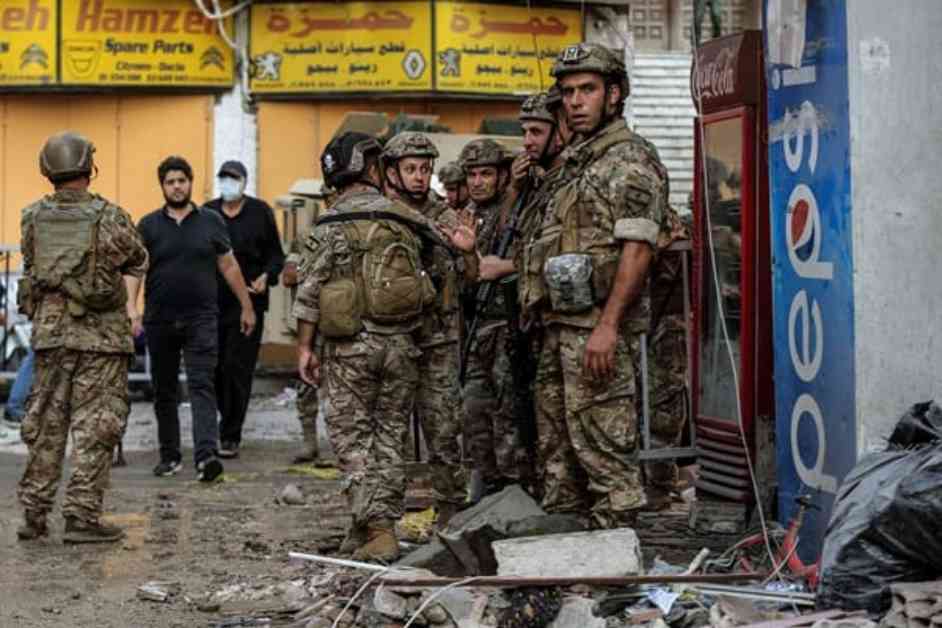Lebanese MP Warns of War as Israel Calls Up Reserves for Operational Missions
A Lebanese Minister has issued a stark warning, declaring that the country is already at war with Israel. The tension between the two nations has escalated to a point where hundreds of air strikes have the potential to displace half a million Lebanese citizens. The Lebanese Health Minister, Dr. Firass Abiad, revealed in an interview with Sky News that the Israeli attacks have resulted in the deaths of over 700 civilians, with thousands more wounded. The situation on the ground is dire, with Israel instilling fear and panic among the Lebanese population, leading to a potential mass exodus.
Israeli Military Mobilization
In response to the escalating conflict, the Israeli military has called up two additional reserve brigades to be deployed to the northern border with Lebanon. These reserves will be tasked with conducting operational missions in the region. The Israeli Defence Force (IDF) emphasized that this mobilization is necessary to combat the Hezbollah terrorist organization, defend the State of Israel, and facilitate the safe return of northern Israeli residents to their homes. The IDF’s actions indicate a readiness to engage in further military operations against Lebanon.
Hezbollah’s Provocation
The situation was further exacerbated when Hezbollah, a militant group based in Lebanon, launched a surface-to-surface missile targeting the Mossad intelligence agency near Tel Aviv. This aggressive act underscores the volatile nature of the conflict between Israel and Lebanon. The White House national security spokesperson, John Kirby, expressed deep concern over the incident, citing it as evidence of a legitimate threat posed by Hezbollah, which is backed by Iran. The ongoing hostilities have raised fears of a full-scale war breaking out in the region.
Humanitarian Crisis
The Lebanese Health Minister highlighted the humanitarian crisis unfolding in the country as a result of the Israeli air strikes. Tens of thousands of Lebanese civilians have sought shelter in underground bunkers, with an estimated 50,000 people currently displaced. However, this number is likely to increase as more individuals flee their homes in search of safety. The Minister painted a grim picture of the situation, warning that the displacement of half a million citizens is a real possibility if the violence continues unchecked.
The escalating conflict between Lebanon and Israel has sparked international concern, with calls for de-escalation and diplomatic solutions to prevent further bloodshed. The United States and other global powers have urged both sides to exercise restraint and seek peaceful resolutions to their grievances. The specter of a full-blown war looms large over the region, with the potential for devastating consequences for both Lebanon and Israel.
The current crisis in the Middle East serves as a stark reminder of the enduring tensions and deep-rooted animosities that persist in the region. The conflict between Israel and Lebanon is just one example of the complex geopolitical landscape that defines the Middle East. The involvement of external actors, such as Iran and Hezbollah, further complicates the situation and raises the stakes for all parties involved.
As the situation continues to deteriorate, it is imperative for all stakeholders to prioritize dialogue and diplomacy in order to prevent the outbreak of a catastrophic war. The impact of a full-scale conflict in the region would be felt far beyond the borders of Lebanon and Israel, with potential repercussions for global security and stability. The international community must work together to de-escalate tensions and find a peaceful resolution to the crisis before it spirals out of control.

